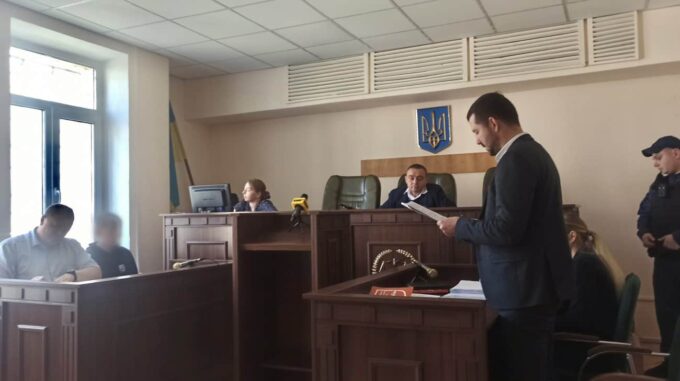A high-profile investigation is ongoing in the capital city regarding an incident that took place in the popular Hydropark and sparked widespread public concern

The incident involved an assault on a military serviceman, who was directly accused by a group of teenagers, approximately aged 15–17. On April 24, a court in Kyiv made a decision regarding preventive measures for four suspects — young people aged 15 to 17. This marked an important milestone in a case that has already attracted the attention of activists, the public, and military personnel, especially considering the sequence of events and public discussion. According to sources from the courtroom, the decision on preventive measures was made separately for each youth. Three of them, aged 17, were placed under 24-hour house arrest, which entails restrictions on freedom at home with permission to go out only at specified times for certain obligations. The other, a 15-year-old, was assigned nighttime house arrest — from 8:00 PM to 6:00 AM — which will last until June 19. It is important to note that this measure aims to prevent possible evasion of investigation or interference with investigative actions. The procedure for selecting preventive measures took place in a quite tense atmosphere. The prosecutor in the case outlined several reasons that justified the chosen level of restrictions. According to him, the main grounds for selecting these measures were the high risk of suspects absconding from the investigation, the likelihood of destroying or hiding evidence, and the potential to influence witnesses and the victim. An important argument was also that the boys have no permanent residence, family responsibilities, or employment that could deter them from evading the investigation. Defense attorneys representing the teenagers argued that applying lighter measures, such as nighttime house arrest or personal commitments, would be more appropriate in this situation. However, the judges upheld their decision, imposing house arrest — both 24-hour for the older boys and nighttime for the younger. The main version of the investigation suggests that the conflict in Hydropark occurred after serviceman Maksym Parkhomenko, who appears in a video of the assault, was allegedly in a state of disorientation and under the influence of alcohol. Witnesses claim that he was in one of the park’s establishments that day, from which he exited intoxicated and loudly arguing. Parkhomenko was not physically present at the court but spoke separately with journalists. He stated that he had several bruises but feels well and has already returned to his military unit, continuing to perform his duties. The serviceman refused to comment in detail on the circumstances that led to the conflict, citing personal and official secrets. So, what exactly triggered the fight? According to eyewitnesses and investigators, on April 18 in Kyiv, a group of teenagers attacked a serviceman, knocking him to the ground and starting to beat him with hands and feet. The incident occurred in a busy area and was recorded on video, which quickly circulated on social media. Two teenagers were detained immediately at the scene, and two more within a day after the attack. Official investigative actions are ongoing, and law enforcement officers continue to clarify all circumstances of the conflict to uncover and hold accountable everyone involved in the group assault. This case has sparked vigorous discussions among the public, particularly regarding the level of moral and legal responsibility of youth, as well as the role of military personnel in society. The actions of the teenagers are already seen as manifestations of irresponsibility and aggression, contradicting fundamental societal values. At the same time, lawyers emphasize that those detained should be approached with consideration for their psychological state and possible reasons for such behavior. This criminal case in Kyiv, with its renewed publicity, highlights the urgent need to strengthen preventive measures, educational programs, and youth work to prevent similar incidents in the future. After all, this is not only a matter of justice but also a question of shaping responsible and moral consciousness in future generations.

